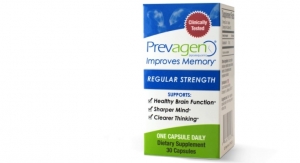By Sean Moloughney, Editor07.05.17
In an era of misinformation and “fake news”—both actual and perceived—building trust with current and potential customers can be a tall order, as facts too often fall victim to beliefs.
For example, the International Food Information Council Foundation’s 12th Annual Food and Health Survey indicated 78% of consumers said they encounter a lot of conflicting information about what to eat and what to avoid. More than half of those (56%) said the conflicting information makes them doubt the choices they make.
This suggests there’s an obvious need for better education regarding nutrition and the role that dietary supplements can play in an overall approach to health and wellness. While diligent consumers have access to so much (often conflicting) information, the direct connection companies can make with their customers has likely never been so illuminating thanks to social media.
As Scott Steinford writes in his discussion of “Trust Transparency," “Trust begins with communication and connection. Learning what customers want has never been easier as social media now provides real-time learning opportunities ranging from Facebook to peer reviews post sale.” Ultimately, trust must be earned through commitments to quality, clinical research, transparency, and customer service, which help build equity and instill confidence—not only in your brand but the broader supplement industry.
Speaking of the bigger picture, Amazon’s acquisition of Whole Foods Market will be a game-changer for both e-commerce and the brick-and-mortar retail landscape. As Mr. Steinford indicated, reports show 52% of online shoppers began their research on Amazon, and 43% of all online sales in 2016 went through Amazon. Meanwhile, Amazon’s new Elements “premium” supplement line is centered around a quality proposition, and includes messaging related to transparency, traceability, and purity.
In order to compete in this environment companies need to establish and retain trust with consumers by building integrity into their brands. This includes diligent oversight of supply chains, adherence to good manufacturing practices, sound testing strategies, as well as commitments to self-regulation. In the end the payoff will be worth it.
For example, the International Food Information Council Foundation’s 12th Annual Food and Health Survey indicated 78% of consumers said they encounter a lot of conflicting information about what to eat and what to avoid. More than half of those (56%) said the conflicting information makes them doubt the choices they make.
This suggests there’s an obvious need for better education regarding nutrition and the role that dietary supplements can play in an overall approach to health and wellness. While diligent consumers have access to so much (often conflicting) information, the direct connection companies can make with their customers has likely never been so illuminating thanks to social media.
As Scott Steinford writes in his discussion of “Trust Transparency," “Trust begins with communication and connection. Learning what customers want has never been easier as social media now provides real-time learning opportunities ranging from Facebook to peer reviews post sale.” Ultimately, trust must be earned through commitments to quality, clinical research, transparency, and customer service, which help build equity and instill confidence—not only in your brand but the broader supplement industry.
Speaking of the bigger picture, Amazon’s acquisition of Whole Foods Market will be a game-changer for both e-commerce and the brick-and-mortar retail landscape. As Mr. Steinford indicated, reports show 52% of online shoppers began their research on Amazon, and 43% of all online sales in 2016 went through Amazon. Meanwhile, Amazon’s new Elements “premium” supplement line is centered around a quality proposition, and includes messaging related to transparency, traceability, and purity.
In order to compete in this environment companies need to establish and retain trust with consumers by building integrity into their brands. This includes diligent oversight of supply chains, adherence to good manufacturing practices, sound testing strategies, as well as commitments to self-regulation. In the end the payoff will be worth it.






















